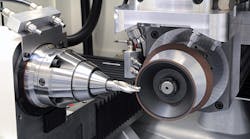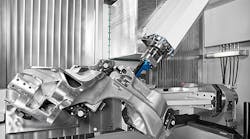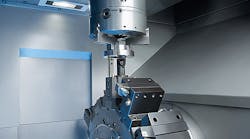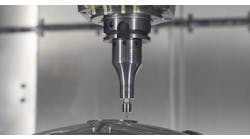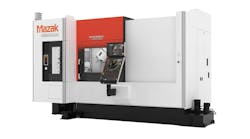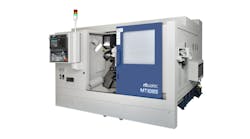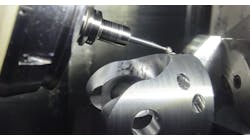Following a record-setting rebound in new-order volumes and revenues for 2015, the German Machine Tool Builders’ Association issued an outlook for continued — but less robust — improvement during 2016. After several years of fitful increases in demand, the industry posted 4% increase revenues to €15.1 billion ($16.7 billion) during 2015.
“We’re expecting moderate growth of 1% in 2016,” stated Dr. Heinz-Jürgen Prokop, chairman of the industry’s trade association (VDW). The German machine tool industry is one of the largest segments of that country’s manufacturing industry, with about 71,600 employees.
New orders for German machine tool manufacturers rose 1% in 2015, to €14.9 billion ($16.45 billion.)
The 2016 forecast is based on expectations of new capital investment by major customer groups, on global statistics for machine tool consumption, and on new orders recorded by German machine tool manufacturers.
VDW cited a study by Oxford Economics, its forecasting partner, which sees global demand for new machine tools increasing 4%. This is based on demand from automakers and their suppliers, the electrical engineering and electronics industries, machine shops and metal product manufacturers, and mechanical engineering operations. Machine tool consumption is forecast to increase 4.2% worldwide, up 4.6% in Europe, up 4.5% in Asia, and up 2.5% in the Americas.
Orders from Chinese manufacturers account for about one quarter of all German machine tools, but were down 8% during 2015 versus the previous year, and the restructuring efforts underway in China are likely to continue to influence 2016 demand.
German machine tool producers have an export ration of about 70%; during 2015, exports rose about 4% overall to €9.4 billion ($10.4 billion): exports to European buyers rose 8% but exports to Asian customers fell 5%.
Global industrial demand will continue to be unsteady in 2016, according to VDW. “Newly industrializing countries” are being challenged by various issues undercutting industrial demand: China is trying to work through its first extended slow-down in manufacturing demand; Russia is suffering due to a weak currency and low oil prices; and Brazil is caught in a serious recession. In addition to these factors are more general “global uncertainties” that are undermining industrial demand.
“So it’s all the more important for our companies, in time of transformative global change, to be on the lookout for new long-term market potentials,” stated Dr. Prokop, referring to new sales markets and new products and services.
VDW sees opportunities for its constituent companies to increase deliveries to Iran, Mexico, and the ASEAN group of countries. As for technologies, the group cited Industry 4.0 initiatives and additive manufacturing technologies as capabilities that should be embraced for the new revenue opportunities they represent.
“If you want to continue prospering in the face of international competition, it’s increasingly imperative to offer solutions that others cannot emulate,” Prokop commented.
